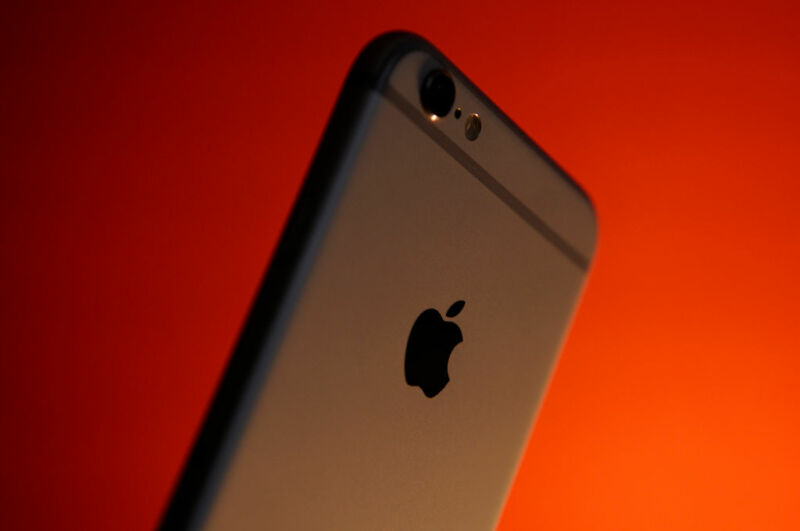well that’s settled —
The problem wasn’t so much what Apple did, states said, as what Apple hid.
Kate Cox
–

Enlarge / An iPhone 6.
The attorneys general for 33 states and the District of Columbia have reached a $113 million settlement with Apple over allegations that the iPhone maker throttled performance in several generations of the device to conceal a design defect in the battery.
The states alleged that Apple throttled performance in aging iPhones without telling consumers it was doing it or why. That concealment violated states’ consumer protection laws, the attorneys general argued.
“Apple withheld information about their batteries that slowed down iPhone performance, all while passing it off as an update,” California Attorney General Xavier Becerra said when announcing the settlement. “Today’s settlement ensures consumers will have access to the information they need to make a well-informed decision when purchasing and using Apple products.”
In 2016 and 2017, consumers using both the regular and Plus versions of iPhone 6, 6S, SE, and 7 devices complained that their phones became significantly slower over time. User testing discovered that the iPhone was apparently throttling performance intentionally to preserve battery life or avoid unexpected shutdowns related to battery failures as the handsets aged.
Apple confirmed in December 2017 that newer versions of iOS were indeed intentionally reducing performance on those devices to prevent taxing the batteries. The company offered owners of those phones reduced-price battery replacements—$29, instead of $79—throughout 2018 in order to alleviate the issue.
The company’s move to throttle performance was perhaps understandable, but Apple’s lack of transparency landed it in trouble with state and federal regulators in addition to ticked-off consumers. The consumer suit wrapped up before the state suits did: Apple settled a class-action claim back in March, giving iPhone owners up to $25 per affected device.
The proposed settlement with the states (PDF) doesn’t kick any money to consumers. The $113 million will instead be divided among the participating offices to support their consumer protection divisions and recoup the cost of litigation. Additionally, the settlement mostly requires Apple to be more transparent about its behavior, providing “clear and conspicuous information” to consumers about device performance management and battery health.
Apple seemed to have learned that particular lesson after it got caught in the first place: after catching flak over the throttling, Apple in 2018 introduced a setting that allows users to choose whether to enable the power-management settings that limit device performance.
The attorneys general for Alaska, Arizona, Arkansas, California, Connecticut, Florida, Hawaii, Idaho, Illinois, Indiana, Iowa, Kansas, Kentucky, Louisiana, Michigan, Minnesota, Missouri, Montana, Nevada, Nebraska, New Jersey, North Carolina, North Dakota, Ohio, Oregon, Pennsylvania, South Carolina, Tennessee, Texas, Utah, Vermont, Virginia, Wisconsin, and the District Of Columbia participated in the settlement.

